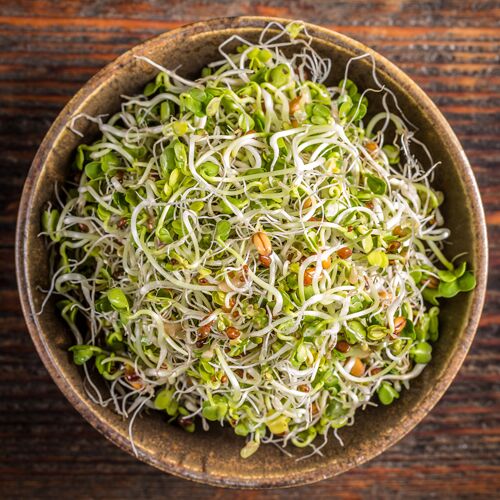Are Sprouts Linked to E. Coli?

Eat clean and get lean with our dietitians, Erin Macdonald and Tiffani Bachus. Find out when their new course, A Whole-Life Guide to Lasting Weight Loss, launches. Register now!
There’s no question that sprouts are an excellent addition to a well-balanced diet. They provide an abundance of disease-protective phytochemicals, as well as plant estrogens that can increase bone density. They’re also a source of saponins, which are compounds that can lower LDL (bad) cholesterol and help reduce your risk of heart disease. But seeds grown in manure can easily become contaminated with E. coli, and the warm, damp environment in which sprouts are grown is ideal for bacteria to fester. If you’re concerned about E. coli, sprouting at home can be a safer alternative to buying from the supermarket, as-long as you do it right. Purchase seeds that have been screened for bacteria by third party independent labs, buy a quality sprouter (a device that ensures proper drainage and air circulation) and properly sanitize it and your hands before touching the seeds. Lastly, always use filtered water with your sprouts. If home sprouting isn’t an option, you can help protect yourself by purchasing fresh sprouts that have been stored below 40 ̊F. Refrigerate them immediately and consume well before the best-before date. We recommend lightly steaming or boiling your sprouts until tender before eating, as cooking will kill off harmful bacteria
See Sprouts Uncertainty to learn more about the nutritional benefits of sprouts.
Registered dietitians Tiffani Bachus and Erin Macdonald are the co-founders and creators of URockGirl.com, a website dedicated to promoting wellness and a healthy, balanced lifestyle.